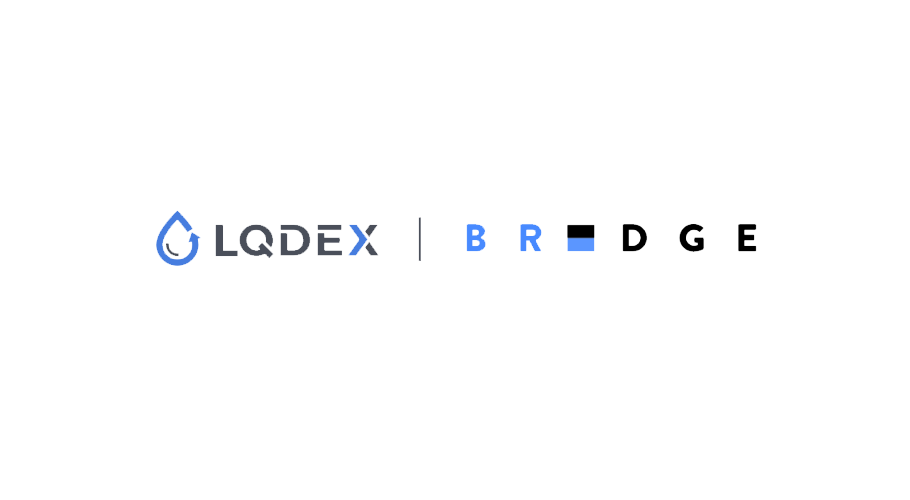LQDEX, a decentralized, cross-chain digital asset exchange today announced that its LQDEX Bridge is now live on testnet. LQDEX Bridge can be used for all Ethereum decentralized exchanges (DEX).
Bridge’s single purpose is to tokenize non-ERC20 assets.
With Bridge, for example, users will be able to trade Bitcoin, Litecoin, and others against ERC20 assets via direct integration to EtherDelta’s smart contract. LQDEX Bridge is on TestNet3 for Bitcoin and Rinkeby for Ethereum (users must have MetaMask installed to access). Trading will be live by Friday, October 19th.
LQDEX Bridge is currently supporting the following coins, to be converted to ERC20 coins:
- Bitcoin — BTC
- Litecoin — LTC
- ZCash — ZEC
- Bitcoin Cash — BCH
- Ethereum Classic — ETC
How LQDX Bridge works
Bridge operates through economically incentivized entities called Collators to stake X amount of LQD tokens in order to accept deposits of external assets like Bitcoin, Litecoin, etc. During the initial alpha release of the LQDEX Bridge, LQDEX will act as the sole Collators and focus on exposing APIs to seek out other potential collators.
For every bitcoin (or any other asset) that is deposited into the bridge, there is an equal amount of proxy token that is minted.
Why do I need to provide an Ethereum address?
Your ERC20 version of bitcoin which LQ-BTC will be minted and sent to your Ethereum address.
What is the reason for generating a new Bitcoin address?
Bitcoin from your external wallet must be deposited first before an ERC20 LQ-BTC can be sent to your address.
What is a good external wallet for testnet?
Chain.so is the LQDEX recommended wallet for Bitcoin and Litecoin.
Remember that the LQDEX Bridge is in the alpha testing phase. The LQDEX team will be monitoring and updating issues as they are identified. Users are encouraged to contact LQDEX directly if they identify bugs. LQDEX reported that they will consider paying a bounty for critical bugs.
